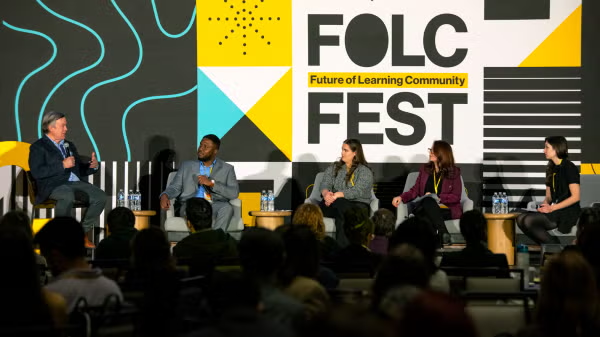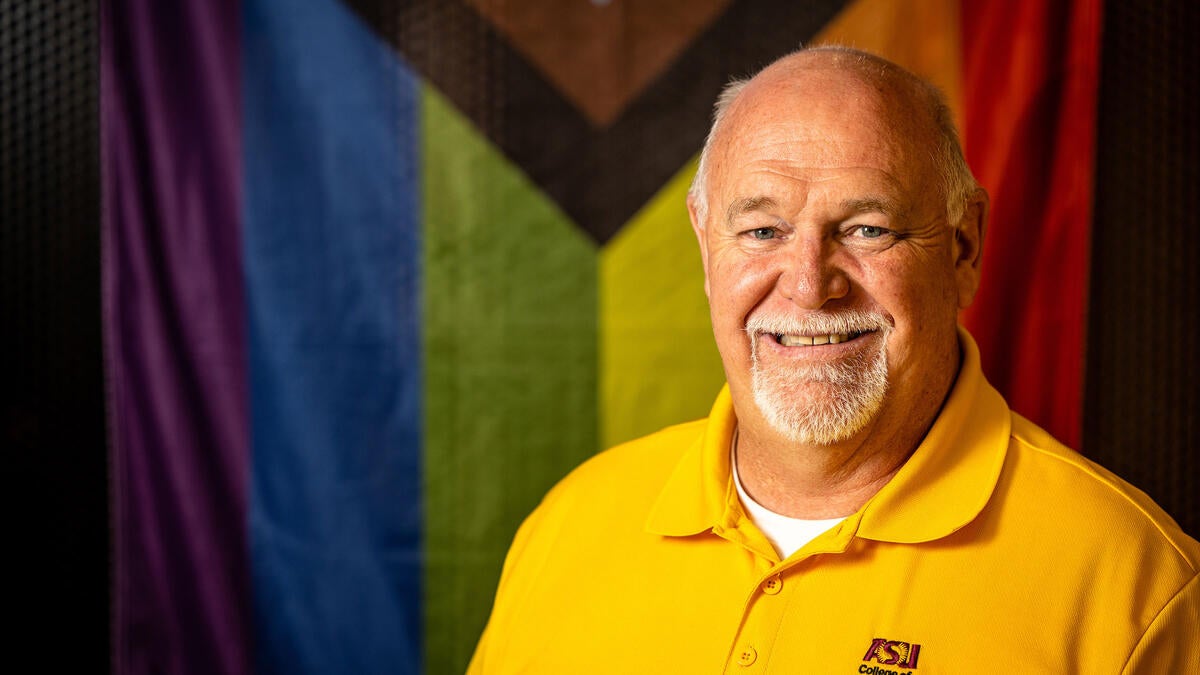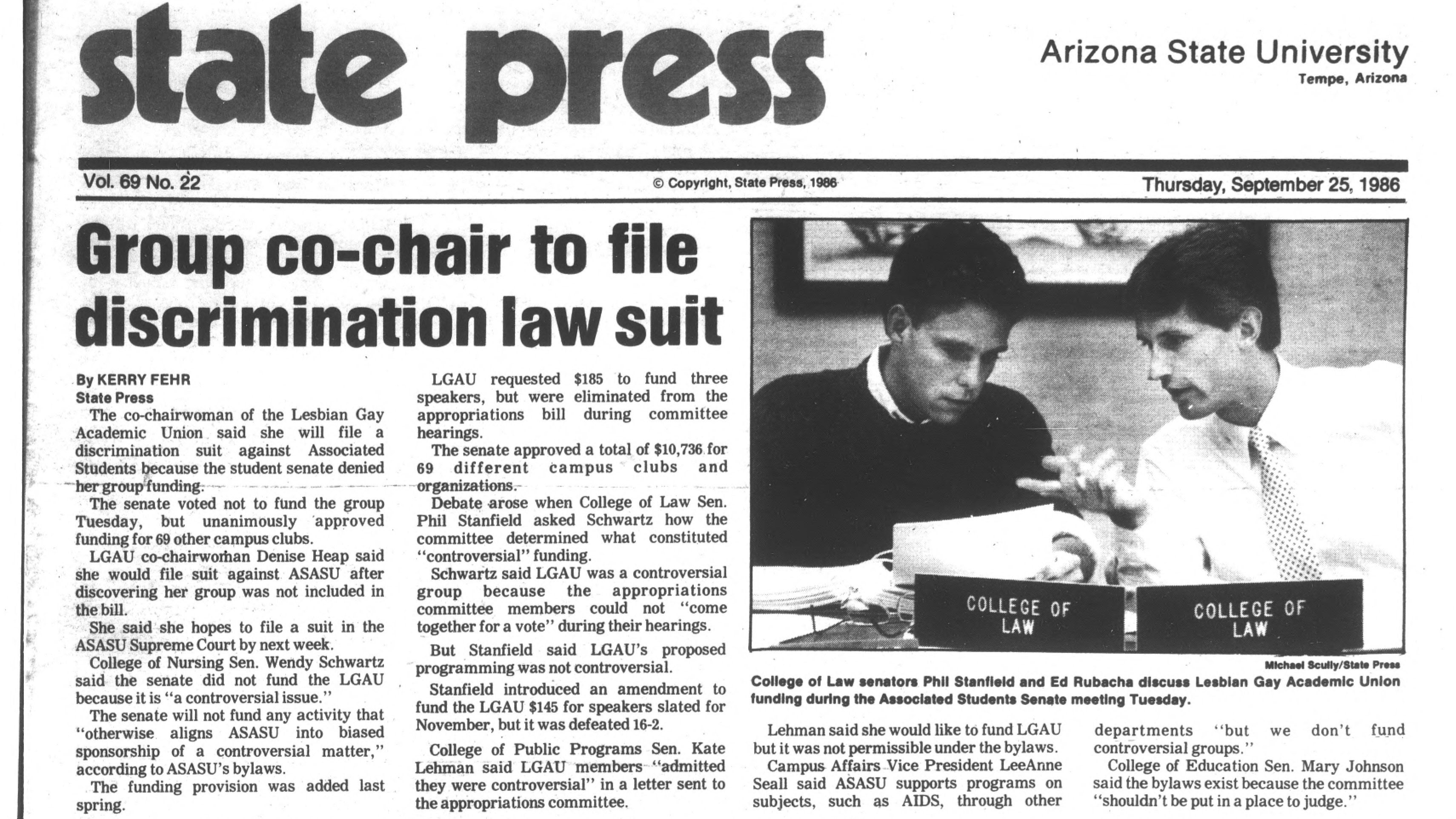When Casey Self came to Arizona State University in 1990, it was the era of “don’t ask, don’t tell” for gay people.
At that time, Arizona’s recently impeached governor, Evan Mecham, was known for being outspoken against gay people and gay rights — not exactly a welcoming environment for a gay man.
Still, Self, who came out in 1993, helped to form a group for gay faculty and staff at ASU called UBIQUITY in 1994 that pursued rights such as domestic partner benefits.
“Even that early, ASU was seeing some consequences of trying to recruit faculty and staff and not having an opportunity to offer potential employees domestic partner benefits for their loved ones,” said Self, who is senior director of academic advising for the College of Liberal Arts and Sciences at ASU.
“And of course, back then it was also for networking and getting to know each other on campus.”
“We were very respectful. There was a process to get onto the distribution list,” Self said, because not everyone was fully out.
“In the early 1990s, there were people who maybe were out to the group but not to their bosses. We were still in a time when it wasn’t a common topic of discussion.”
Later, the LGBTQ+ Faculty and Staff Association was established in 2016 and merged with UBIQUITY.
Today, the association still looks to bolster its membership, as the organization has fluctuated a lot, according to Joshua Thompson, president of the group and manager of the Learning Experience Technology Studios.
“After gay marriage became legal (in 2015), the group dwindled in membership so we’re trying to reinvigorate it and get things started again.”
Self said the wave of anti-LGBTQ legislation and sentiment across the country the past few years highlights the continuing need for organization.
“It’s nerve racking that it’s still here. That uneasiness still exists,” he said.
A history of fighting for rights
In 1974, a student group called the Lesbian and Gay Academic Union formed, according to an Associated Press article in ASU’s archives. But during the 1980s, the Associated Students Senate refused to fund the group for several years. A State Press newspaper article quoted a student senator as saying that the funding was denied because the group was “controversial.”
Image courtesy University Archives.
Also, a July 1987 memo found in the university archives shows Gov. Mecham wrote to ASU President J. Russell Nelson, inquiring about a “homosexual club” on campus, stating: "I think the existence of a homosexual club on campus is a questionable activity and would like to hear from you relating to this matter.”
In response, Nelson said that he believed the Lesbian and Gay Academic Union had a right to exist under the First Amendment.
In the mid-90s, Self was involved in helping to re-energize the student group, becoming its co-advisor and working to create an LGBTQ studies certificate.
The student group also lobbied for events such as the Rainbow Convocation (formally known as the Lavender Convocation) and an annual awards ceremony.
Self said the student and employee groups then got together to create a list of things on campus they hoped would be addressed.
That included a better system for reporting bias incidents, more inclusion of the LGBTQ experience in the curriculum and a center for the LGBTQ community.
“We wanted the ASU nondiscrimination clause to include the LGBTQ community, and we went as far as asking that vendors and business partners don’t discriminate,” he said.
But the big issue was domestic partner benefits.
“I was part of a universitywide task force to look at all sorts of policies and procedures related to LGBTQ people and family members.
“And that is when the university decided to make domestic partnership benefits available, and so when somebody would ask about it, there was a contact in HR and the benefits became available.”
Staying visible
Pride Month was started in the early 1970s, after the Stonewall riots, as a way for queer people to celebrate their history without having to hide their identity.
Self has seen a lot of changes over the decades — even in the use of the word “queer,” which used to be a slur.
“I’ve finally accepted it and acknowledged that they are taking the term back as a power,” he said.
Now, ASU has an Out at ASU website linking to resources for the queer community, including links to student groups, a faculty guide for trans student inclusion in the classroom, SafeZONE training for faculty and staff, a guide to gender-neutral restrooms on campus, gender-inclusive housing accommodations for students, an email template for requesting asserted names and pronouns, voice training and events throughout the year.
Self said that, personally, he did not experience discrimination at ASU.
“I consider myself very fortunate. In my whole time at ASU, I’ve never been in a situation where I felt discriminated against in terms of policies or processes that kept me from being able to do something I needed or wanted to do.”
Self says the community needs to work to stay visible, and that’s what the Queer Faculty and Staff Association is doing as it recharges.
“We’re trying to raise the bar,” Self said.
“We can’t let things slide. We can’t let people be invisible. … We know that we work in a state where things are OK now, but, depending on an election, things could change in a heartbeat.”
University Archivist Shannon Walker assisted with this story.
Top photo: Casey Self, senior director of academic advising for The College of Liberal Arts and Sciences, helped form a group for gay faculty and staff in the early 1990s. Photo by Charlie Leight/ASU News
More Sun Devil community

How 2 women who call each other 'sis' raised ASU running back Kyson Brown
The Lancaster High School graduation ceremony has just ended, and running back Kyson Brown poses for a photo with the two most important people in his life. ASU…

FOLC Fest 2025 explores Principled Innovation, leadership and learning at ASU
"Principled Innovation is about using our creativity, knowledge and resources to make decisions that ultimately benefit humanity — not just in the short term, but for generations to come."That's what…

These Sun Devils are inspiring the next generation of female athletes
This year, Women's History Month is celebrating the theme “Moving Forward Together! Women Educating and Inspiring Generations.”Women in sports inspire fans of all ages through their accomplishments…



